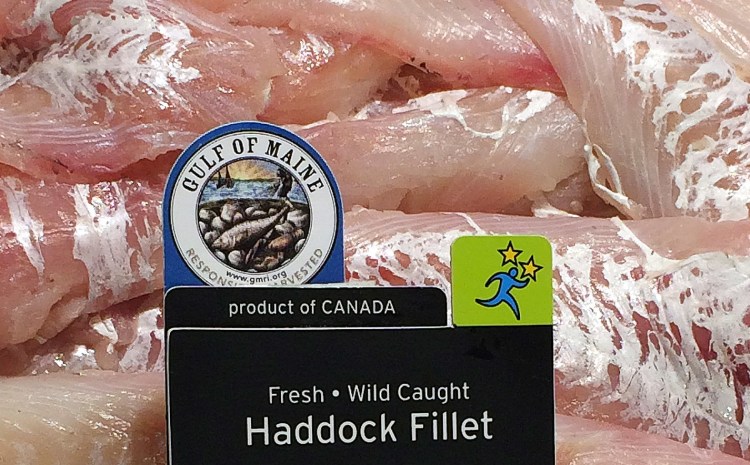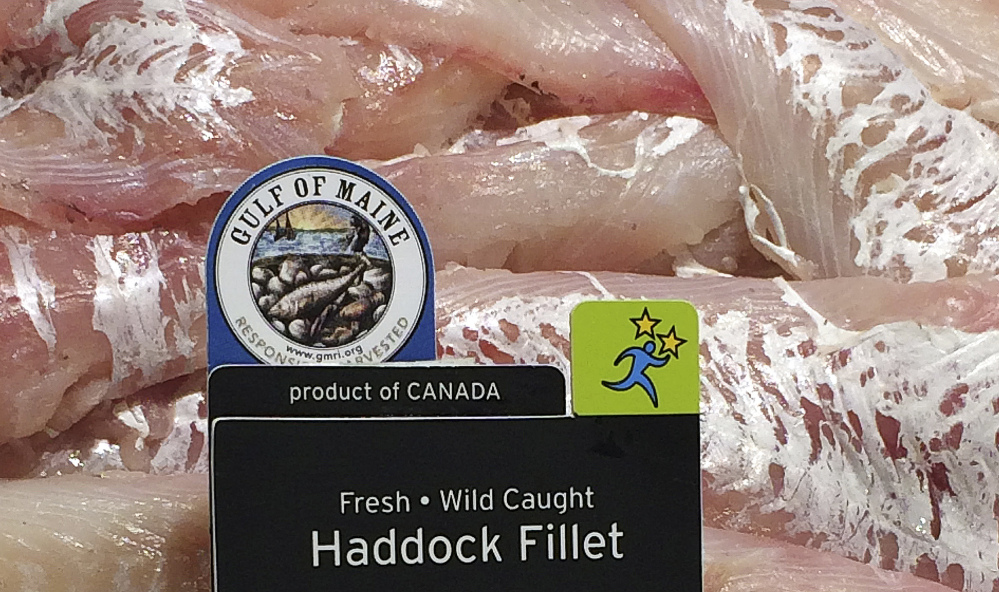A Maine science institute wants students at New England colleges to know if the seafood in their school cafeterias was pulled from the region’s waters.
The Portland-based Gulf of Maine Research Institute is targeting colleges and universities to carry its label that promises seafood products are harvested locally and sustainably. The institute offers a “responsibly harvested” label to food vendors that can source products back to the Gulf of Maine. Supermarkets, including regional giants Shaw’s and Hannaford, have so far been the primary vendors to carry the stamp, which launched in 2011.
Wellesley College in Massachusetts and the University of New Hampshire are the first colleges to sign on to use the label, institute seafood brand manager Kyle Foley said. The institute is talking to several other schools in New England and hopes to announce more partnerships in the next six months, she said.
“We’re providing some way for consumers to make a choice to support the industry,” Foley said. “There is a lot of great seafood here in this region and consumers have incredible power to support coastal communities.”
The institute verifies whether seafood processors are using seafood harvested in a way that contributes to the long-term health of the stock, Foley said. The fish must meet several criteria, including the existence of management plans and sufficient data about harvest levels, to earn the label. They must also be caught in the Gulf of Maine, which stretches from Cape Cod to Nova Scotia. The label can be applied to 10 species, including popular staples such as lobster, scallops and haddock.
The Gulf of Maine Research Institute charges processors a fee on sales of products that end up with the label, which has netted the institute more than $200,000 so far, Foley said. The processors then sublicense the right to use the label to vendors, like stores and schools, which also sign an agreement with the institute, she said.
Keith Tyger, the executive chef of dining services at Wellesley, said the label will soon be appearing alongside horseradish-encrusted dogfish and Mediterranean-style hake at the Boston-area college.
“With the struggles of the local fisherman and how the industry has been decimated around here, it’s a step to start to support the local economy,” Tyger said.
The research institute’s sustainability label is one of many in the culinary world. The Marine Stewardship Council labels more than 20,000 products with its “certified sustainable seafood” label, which appears all over the world. All the labeling and focus on local ingredients can add costs, but it also lends accountability to the vendor, said Michael Leviton, a Boston-area chef.
“At the end of the day, we’re still at a point where sustainability needs to be sold,” Leviton said.
Send questions/comments to the editors.



